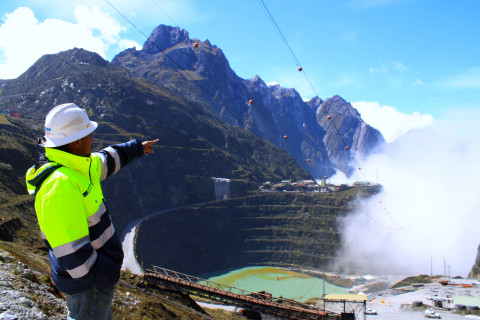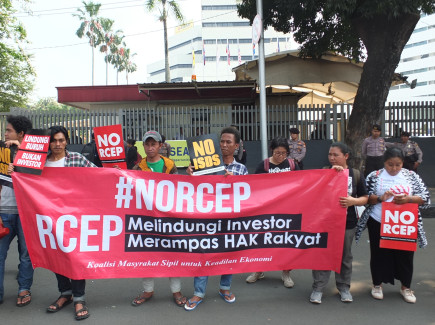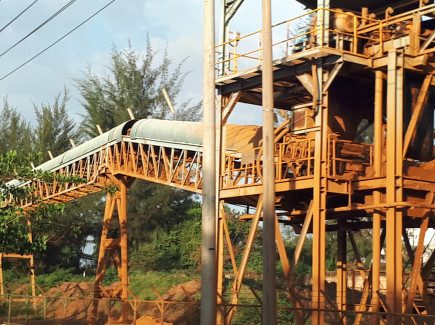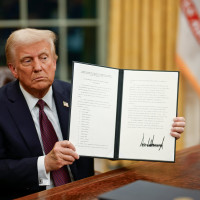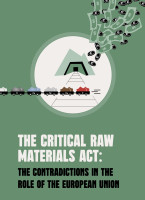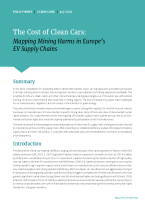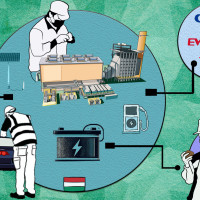One of the main issues under the US tariff negotiation with Indonesia is critical minerals. Indonesia sees an opportunity to position itself as an alternative to China as a supplier of critical minerals. Copper and nickel are seen as commodities that can be used as leverage in Indonesia’s tariff negotiations, especially considering the strong role of US mining companies in both commodities, such as Freeport Mc-Moran and Newmont Mining (now Amman Mineral Nusantara).
Indonesia has used the tariff conversation to reopen negotiations with the US on critical minerals, particularly on the previous agreement reached between Joe Biden and Jokowi in 2023. Indonesia is one of the members of the Indo-Pacific Economic Framework, a Comprehensive Strategic Partnership cooperation[6], where Indonesia is in the supply chain pillar. After President Trump was elected for his second term, the Comprehensive Strategic Cooperation discussion with Indonesia stagnated. Furthermore, the status of IPEF Cooperation is also unclear, considering that the US is currently prioritising bilateral negotiations. It does appear, however, that the framework for the Indonesia-US bilateral reciprocal tariff agreement will supersede the two previous agreements.
However, how can critical mineral deals with the US be beneficial for Indonesia? What trade-offs does the country have to make?
To reach this framework agreement, Indonesia has had to dilute or abandon key policy positions that had made it the subject of much praise as an example of how developing countries can benefit from their own resources. First, the framework of the Indonesia-US reciprocal tariff agreement has succeeded in forcing the Indonesian government to abolish its export restriction policy, particularly on critical minerals, and second, it calls upon Indonesia to join the Global Forum on Steel Excess Capacity and to take action to address overproduction.
Indonesia's efforts to cooperate with the US on critical minerals will likely be undermined by Trump's 'Made in America' policy. His neo-protectionist policy will prioritize US industrial interests and bring back the industry to the US. The American Iron and Steel Institute supported this agreement, viewing Indonesia's commitment to removing restrictions on the export of critical minerals, particularly nickel, as highly strategic for stainless steel production in the US[7]. Indonesia's nickel export ban has caused global steel overcapacity and production as Chinese companies have direct access to nickel supplies from Indonesia and thus outcompete US steel producers. Indonesian stainless-steel products are now subject to anti-dumping policies, including those implemented by the European Union. Therefore, the US calls upon Indonesia to join the Global Forum on Steel Excess Capacity and to take action to address overproduction. Among other things, it urges the government not to provide market-distorting subsidies and other types of support, including to fight protectionism as exemplified in, for instance, the export ban policy [8].
China's dominance in the global mineral production and processing industry has engendered significant interdependencies with the US. Critical mineral bottlenecks are a direct threat to US economic and national security[9]. To mitigate this, shortly after his January inauguration, Trump issued many executive orders in a strategy aimed at securing critical mineral supplies as part of The US’s national security agenda to reduce China's influence, especially in the Indo-Pacific region
Trump’s policy aims to access raw minerals that can be processed domestically, to mitigate the significant vulnerabilities caused by US reliance on foreign sources for, in particular, smelted and processed minerals such as copper and nickel. For example, US copper smelting and processing capacity lags behind from China, which accounts for 50% of global copper smelting supply[10]. In this regard, the call for Indonesia to lift export restrictions to unlock access to critical minerals for the US is a top priority.
Previously, the Indonesian government stated that it would not surrender its policy of banning raw mineral exports in negotiations with the US and would continue to promote exports of high value-added processed minerals, both nickel and copper[11].
However, it is apparent that the US will not simply accept Indonesian stainless steel products entering its market, due to overcapacity issues. Moreover, the US steel industry coalition has consistently urged Trump not to grant an exemption for Indonesia regarding the implementation of a 50% tariff on stainless steel, and copper[12]. For them, nickel supply from Indonesia could address the issue of mineral raw material inputs for the US steel and clean tech industries, including the defense industry, which has long been dominated by China.
Since 2020, the Indonesian government has banned the export of low-grade nickel products with a content of less than 1,7%[13]. However, it should be noted that since 2021, through a Ministry of Trade Regulation, the government has limited the export of nickel pig iron and ferronickel products with certain grades[14].
Indonesia’s decision to impose an export ban on nickel commodities, particularly ferronickel and pig iron, aims at controlling production volumes and prioritising nickel production for the development of the battery industry, in light of declining nickel reserves. Indonesia’s increased production benefits Chinese companies that mine locally, as the output is primarily exported rather than used to strengthen Indonesia's domestic battery industry, which remains dependent on imported semi-finished materials from China. Consequently, various nickel industry associations in Indonesia have been calling for the Indonesian government to impose a moratorium on the development of smelters, including revoking incentives for stainless steel production[15].
The US-Indonesia reciprocal tariff framework, which states Indonesia's commitment to abolishing its nickel export ban policy, will thus certainly have an impact on the revision of the regulations mentioned above. These regulations are fundamental to the development of the battery industry in Indonesia. This policy is an important instrument for limiting the volume of stainless steel production in Indonesia and encouraging the Indonesian nickel industry, including Chinese companies, to accelerate nickel processing for battery raw materials. Indonesia's commitment to eliminate export restrictions in the mineral sector to the US will thus be more detrimental to Indonesia, and will hinder the acceleration of nickel industrialisation for batteries and other clean tech industry such as solar panel. Additionally, Indonesia will be missing out on the opportunity to leverage its nickel wealth, given the depletion of reserves.
